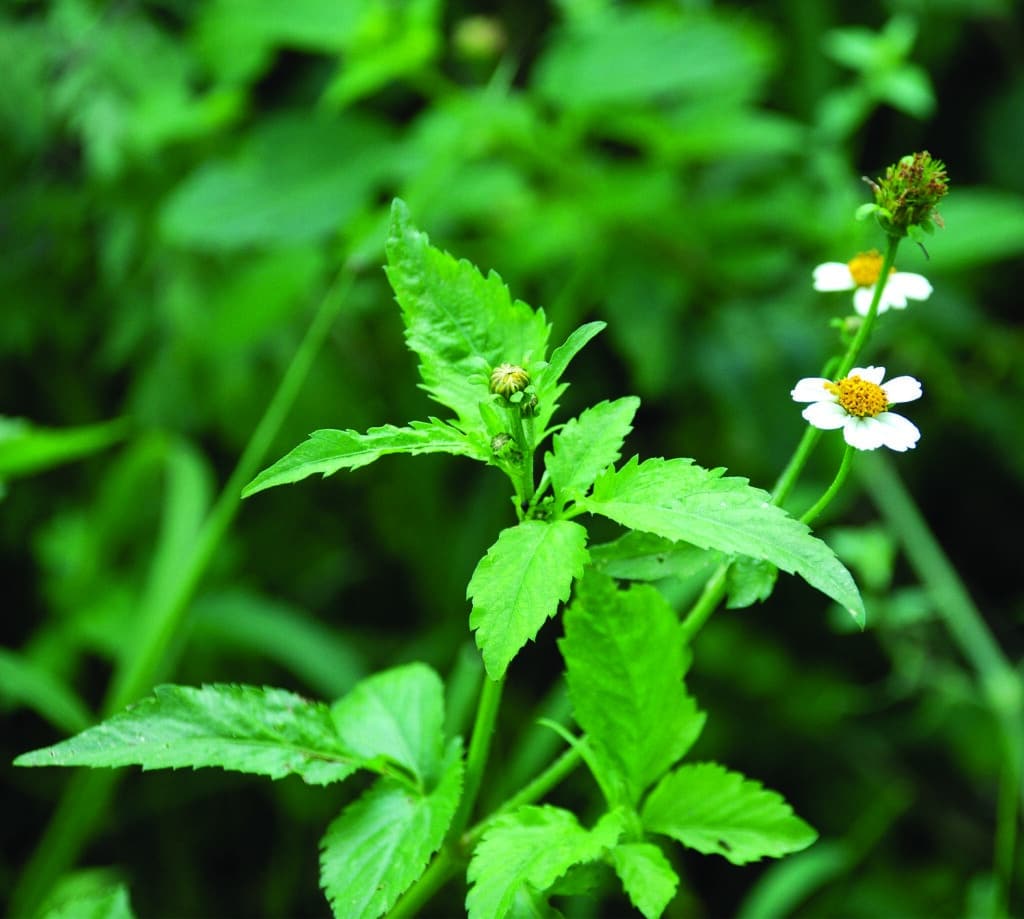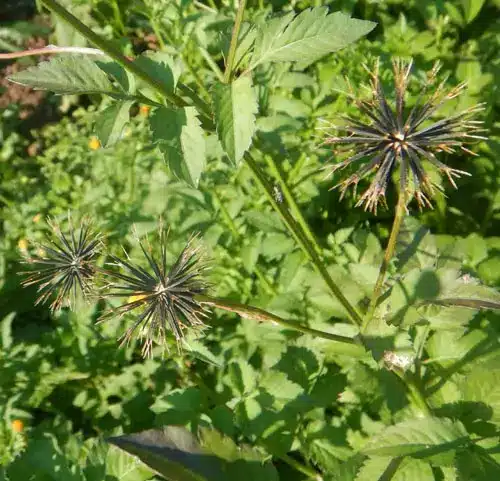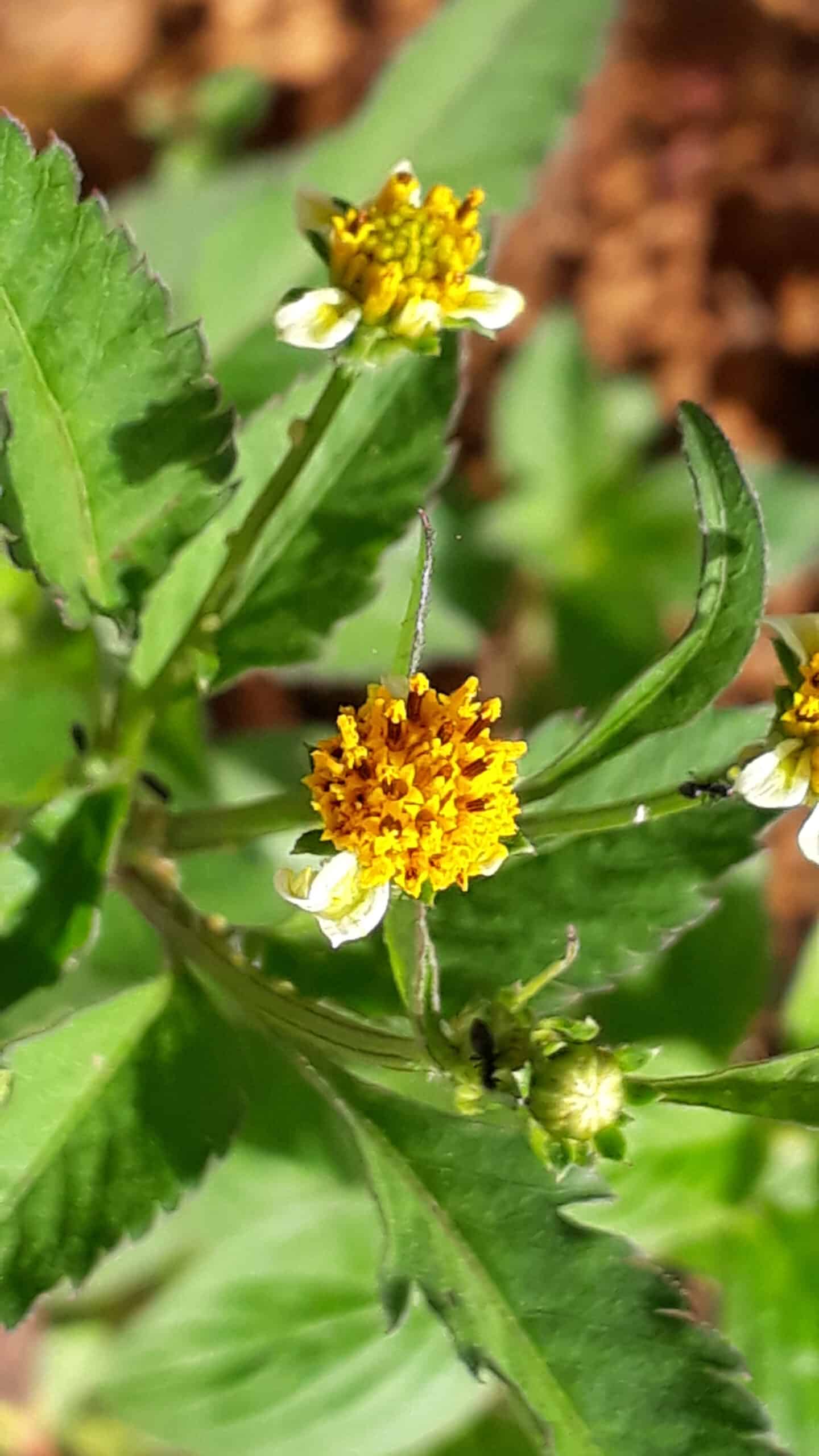Bidens Pilosa, a humble herb known by various names such as Cobbler’s Peg, Farmer’s Friend, and Beggar’s Tick, has a fascinating history deeply rooted in traditional medicine across the globe.
In this article, we will delve into the Ayurvedic perspective on Bidens Pilosa, unveiling its botanical characteristics, habitat, nutritional value, and the diverse range of medicinal benefits it offers. From its potential in managing diabetes to its remarkable anti-cancer properties, Bidens Pilosa emerges as a valuable asset in Ayurvedic medicine.
Botanical Characteristics and Nomenclature
Bidens Pilosa’s name draws from its distinctive botanical features. “Bidens” signifies “two teeth,” referencing the hairy calyx or pappus surrounding the growing bud, often resembling two teeth. “Pilosa” denotes “hairy,” aptly describing the plant’s overall appearance.
This herb boasts a plethora of common names across different regions, a testament to its widespread distribution and recognition.

Habitat and Remarkable Proliferation
Originating in South America, Bidens Pilosa has found its way into tropical and subtropical regions worldwide.

Its extraordinary hardiness enables it to thrive in diverse environments, earning it the status of an invasive weed in many areas. In India, it flourishes in the Himalayas, even at altitudes of up to 2500 meters, and is commonly found in gardens, waste areas, and tea plantations.
A striking feature of this herb is its explosive reproductive potential, with a single plant capable of producing thousands of seeds, many of which readily germinate.
Nutritional Value
Bidens Pilosa is not only a medicinal powerhouse but also a valuable source of essential nutrients.
It boasts impressive quantities of vitamin C, surpassing even oranges in this regard. Its iron content is remarkably high, making it a superior source of this essential mineral when compared to meat and other leafy greens. Additionally, it contains a substantial amount of zinc, showcasing its potential as a nutritious dietary addition.
Notably, the flower buds are rich in calcium, adding to its nutritional value.
Medicinal Benefits and Uses
Bidens Pilosa has a rich history of medicinal use across various cultures, and modern scientific research has substantiated many of its traditional applications.
This herb exhibits a wide spectrum of medicinal properties, including antibacterial, anti-inflammatory, antioxidant, antimalarial, liver-protective, and diuretic qualities, among others. Here are some of its key medicinal uses:
Diabetes Management: Bidens Pilosa has been traditionally employed to treat diabetes mellitus globally. Contemporary research supports its effectiveness in lowering blood sugar levels and preventing the onset of diabetes.
Anti-Cancer Activity: Research highlights Bidens Pilosa’s cytotoxic properties, rendering it toxic to cancer cells. It demonstrates robust anti-cancer activity, particularly as an anti-angiogenic agent, inhibiting the growth of new blood vessels crucial for cancer development.
Hypertension Control: This herb has demonstrated its ability to help reduce blood pressure, offering hypotensive and vasodilatory actions. It contains flavonoid compounds that can lower elevated blood pressure and induce functional vascular changes.
Oral Health: Bidens Pilosa is applied to ulcers and swollen glands, showcasing its potential in promoting oral health.

Medicinal Uses Around The Globe
Bidens Pilosa’s medicinal applications span the globe:
- In South America, native Amazonians consume it as an edible plant and brew herbal tea.
- In Uganda and Africa, fresh or dried shoots and young leaves are boiled in sour milk and consumed as vegetables.
- Kenya utilizes it as a traditional leafy vegetable to improve overall health.
- In the Himalayan region, it is harvested to prepare “Ladakhi tea,” a local beverage known for its medicinal properties.
Ayurvedic Properties and Energetics
*These properties are cognised by Ayurvedic practitioner Dylan Smith through pratyakśa (perception) and yukti (logical reasoning / rational / application of intelligence). These Ayurvedic properties of Bidens pilosa are not definitive. They are a start to comprehend them. We welcome anyone with insight and perception to share what they think or have learnt about the Ayurvedic properties of Bidens pilosa.
Bidens Pilosa’s Ayurvedic properties, known as “Rasa Panchaka,” encompass the taste (Rasa), potency (Virya), post-digestive effect (Vipaka), and qualities (Gunas) attributed to this herb. It influences the bodily doshas (Dosas) in a specific manner. Here is an overview of its Ayurvedic properties:
- Rasa (Taste): Kashaya (Astringent), Tikta (Bitter)
- Virya (Potency): Sheeta (Cold)
- Vipaka (Post-Digestive Effect): Amla (Sour)
- Gunas (Qualities): Ruksha (Dry), Laghu (Light), Suksma (Subtle)
- Doshas (Effect on Bodily Doshas): Pacifies Pitta (P) and Kapha (K), increases Vata (V)
While these Ayurvedic properties of Bidens Pilosa are not definitive, they provide valuable insights into its therapeutic potential within the Ayurvedic framework.
In conclusion, Bidens Pilosa stands as an extraordinary herb with a rich history of medicinal use and a promising future in both traditional and modern medicine. Its wide range of applications, from managing diabetes to its potential in cancer treatment, underscores its value in promoting human health.
As Ayurveda continues to unravel this herb’s properties and applications, we may discover even more reasons to consider Bidens Pilosa as a precious addition to our holistic wellness practices.








2 Responses
I used Bidens Pilosa to cure polymyalgia rhumatica , which i got from having a flue injection {confirmed by 2 doctors } i took it as a tea .
I love that for you xo it is a great plant😊